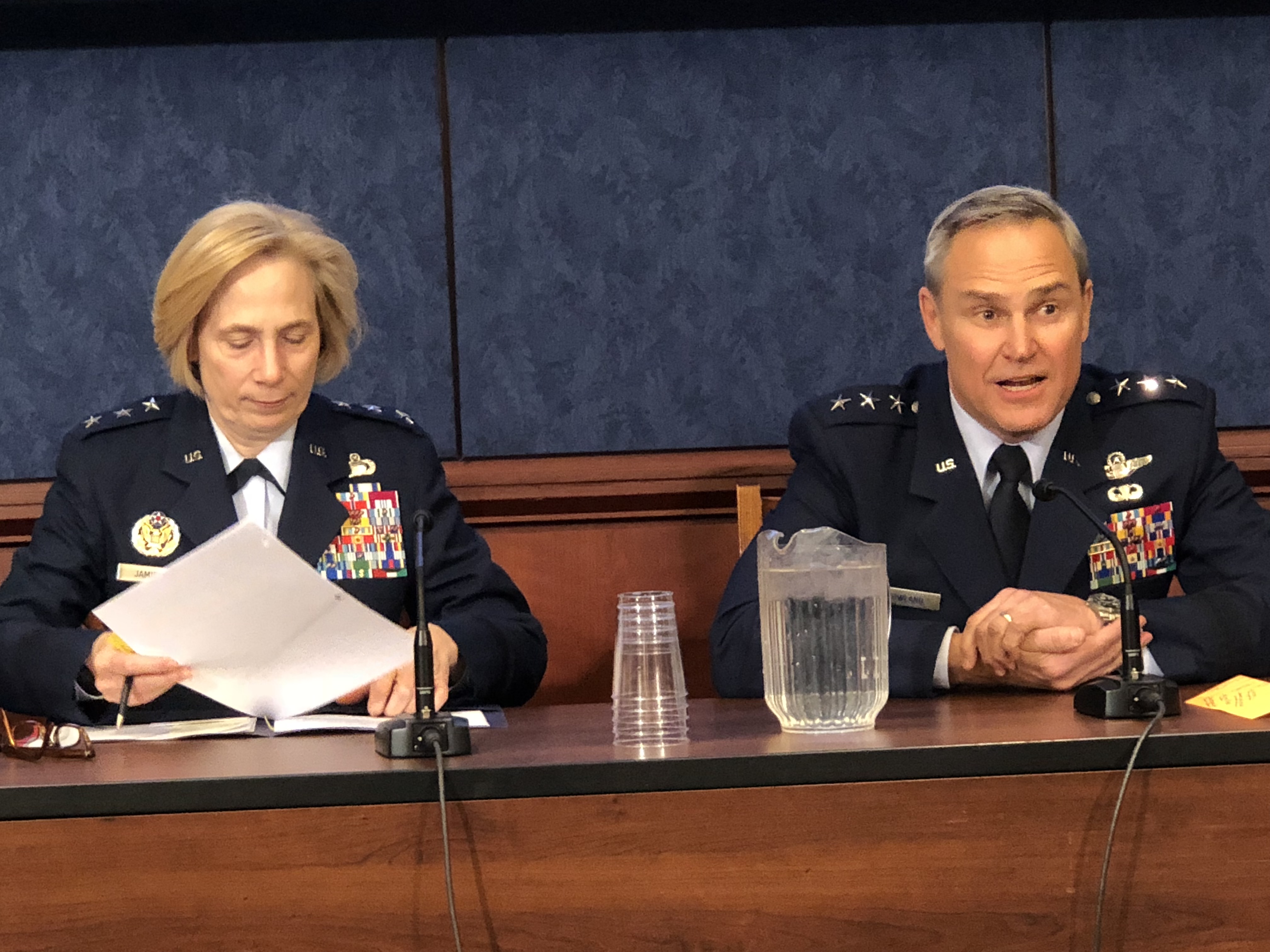
Lt. Gen. VeraLinn Jamieson, deputy chief of staff for ISR, and Lt. Gen. Chris Nowland, deputy chief of staff for operations, speak at an AFA Mitchell Institute event on Capitol Hill Wednesday. Staff photo by Amy McCullough.
Russia and China are watching and learning from the US, which has been in continuous combat operations for nearly three decades, a top Air Force intelligence official told a Washington meeting Thursday.
Lt. Gen. VeraLinn Jamieson, deputy Air Force chief of staff for ISR, made the comments at an AFA Mitchell Institute session on Capitol Hill on threats to air supremacy, where she appeared with Lt. Gen. Chris Nowland, deputy chief of staff for operations.
“We are really not as far ahead of our adversaries as we’re used to being,” she told the gathering, adding that the United States is approaching a time when it will no longer be as sure of uncontested air superiority as it has in the past.
She said Russia sees itself as a peer to the United States in air-to-air defense, while China sees itself as about 10 years behind the United States.
Jamieson pointed to such changes as increased Russian use of precision-guided munitions in Syria, longer missions by both the Russian and Chinese air forces, as well as the integration of airborne command and control, ISR, and refueling capabilities.
The situation, she said, really has changed because US adversaries are “watching us, they’re learning from us, and the skies over Iraq and specifically Syria have really just been a treasure trove for them to see how we operate.”
In addition, she said, officials know US operations in other areas, including the Korean Peninsula, are being watched.
China and Russia “are not just concentrating on defeating our air superiority, … they’re taking a broader, multi-domain approach,” she said, pointing to space-based systems and adversary cyber hacking abilities. US officials, she said, believe they have integrated cyber attack capabilities into their plans for engagement in the future.
In Syria, she said, Russia has employed precision-guided munitions “really for the first time in a combat role.” In addition, Russia has cycled almost 85 percent of its “line unit aircrews” across their air force into combat operations.
Russia wants to “test the mettle” of its aircraft and pilots, noted Jamieson, who added that Moscow has used Syria “as a testing ground” for aircraft and munitions, conducting “really, what I would characterize as their first away-game operations in a complete, continuous deployment arena.”
On North Korea, while Nowland reiterated the US is ready to “fight tonight,” he said that country has “a much more significant” integrated air defense system than exist in some other places where the United States has fought during the last 25 years, which “reinforces the need to advance our assistance and capabilities.”
“You have to have the ability to conduct more than one operation at a time, or else we leave our role as the world’s sole superpower and move into the realm of a regional power,” he said.